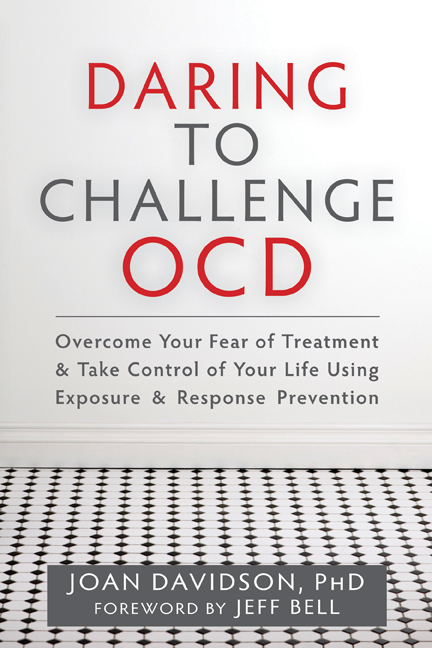By Joan Davidson, PhD
Your client reads that exposure and response prevention (ERP) is the gold standard for treatment of OCD. She tells you, “I’m willing to try ERP, but I’m only willing to do some exposures and not others!”
You can do a number of things in response. You’ll want to spend time discussing the client’s fears. You can help her understand the goal of treatment: learning to face obsessions whenever and wherever they occur, and in whatever form they take. The client will practice “leaning in” to the underlying uncertainty and discomfort that obsessions trigger without using compulsions to gain temporary relief. The goal is learning to face obsessions now and in the future, and to change beliefs about the consequences of doing so. You can also discuss the advantages of choosing to embrace uncertainty and doubt rather than trying to escape from it, including living a life more in line with the client’s values.
Clients often hope there’s a quick fix; by facing only some fears, they hope they’ll reduce enough anxiety to feel better. Alternatively, they mistakenly think that with a little practice, they’ll stop having obsessions and anxiety altogether. Learning that “recovery” is a lifelong goal of facing obsessions head-on and riding out anxiety can be a hard pill to swallow, but it sets the stage for developing realistic expectations and understanding the value of eventually facing all obsessions.
Some clients may prefer to take more time before committing to treatment. This is a fine option, for it may be better to wait and begin treatment when they’re ready. Another option is to begin ERP sessions and then reevaluate. Once clients understand how ERP works by facing challenges that are lower on their hierarchy of fears, they’re often in a better position to evaluate the value of “going the distance.”
 Joan Davidson, PhD, is codirector and founding partner of the San Francisco Bay Area Center for Cognitive Therapy and assistant clinical professor in the clinical science program at the University of California, Berkeley. For over twenty years she has worked as a cognitive behavioral clinician specializing in the treatment of adults with mood and anxiety disorders. In addition, she teaches, writes, and provides clinical consultation and supervision to students and licensed professionals. Davidson is Founding Fellow of the Academy of Cognitive Therapy and an Academy of Cognitive Therapy Certified Trainer/Consultant. She is author of Daring to Challenge OCD and coauthor of The Transdiagnostic Road Map to Case Formulation and Treatment Planning.
Joan Davidson, PhD, is codirector and founding partner of the San Francisco Bay Area Center for Cognitive Therapy and assistant clinical professor in the clinical science program at the University of California, Berkeley. For over twenty years she has worked as a cognitive behavioral clinician specializing in the treatment of adults with mood and anxiety disorders. In addition, she teaches, writes, and provides clinical consultation and supervision to students and licensed professionals. Davidson is Founding Fellow of the Academy of Cognitive Therapy and an Academy of Cognitive Therapy Certified Trainer/Consultant. She is author of Daring to Challenge OCD and coauthor of The Transdiagnostic Road Map to Case Formulation and Treatment Planning.


